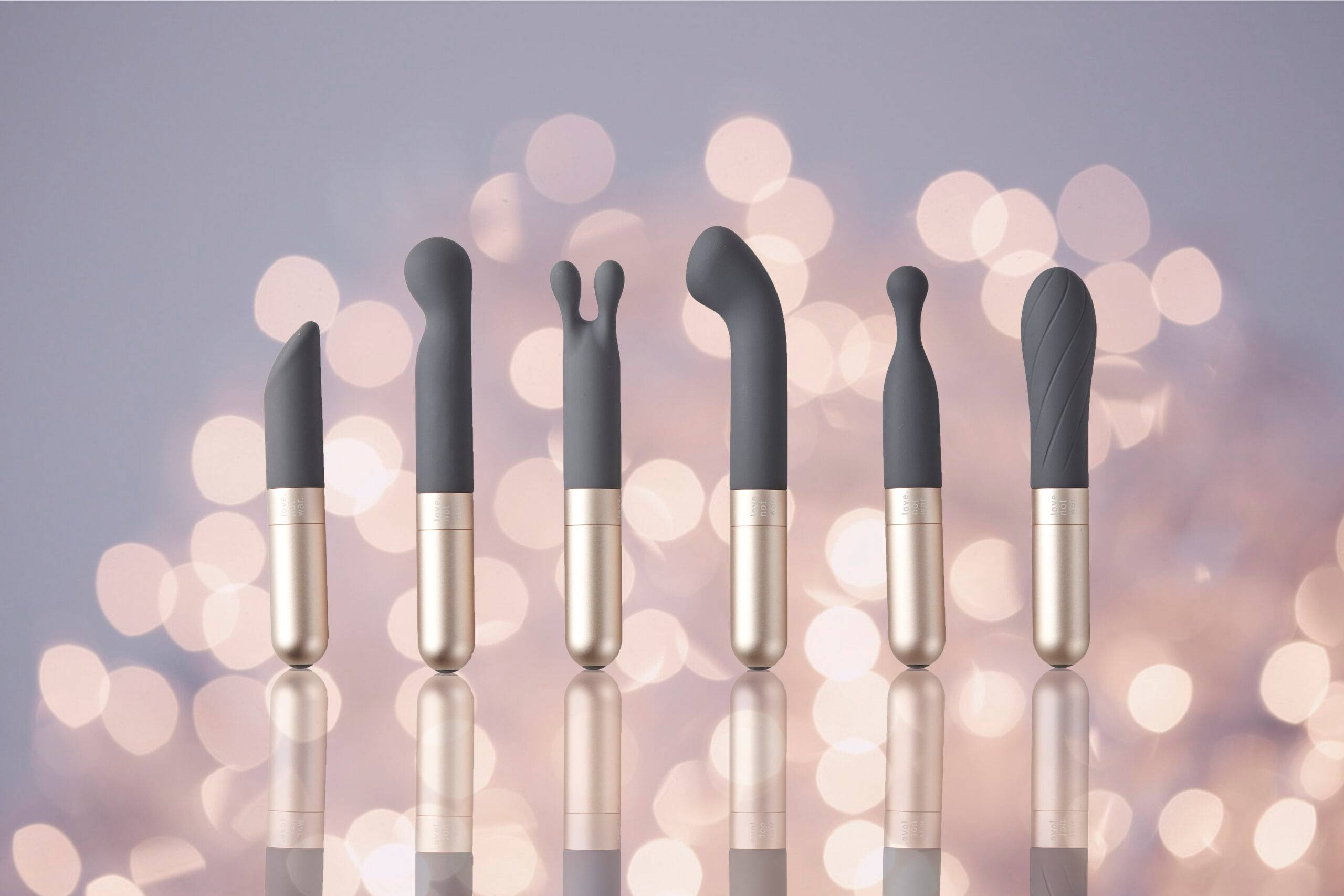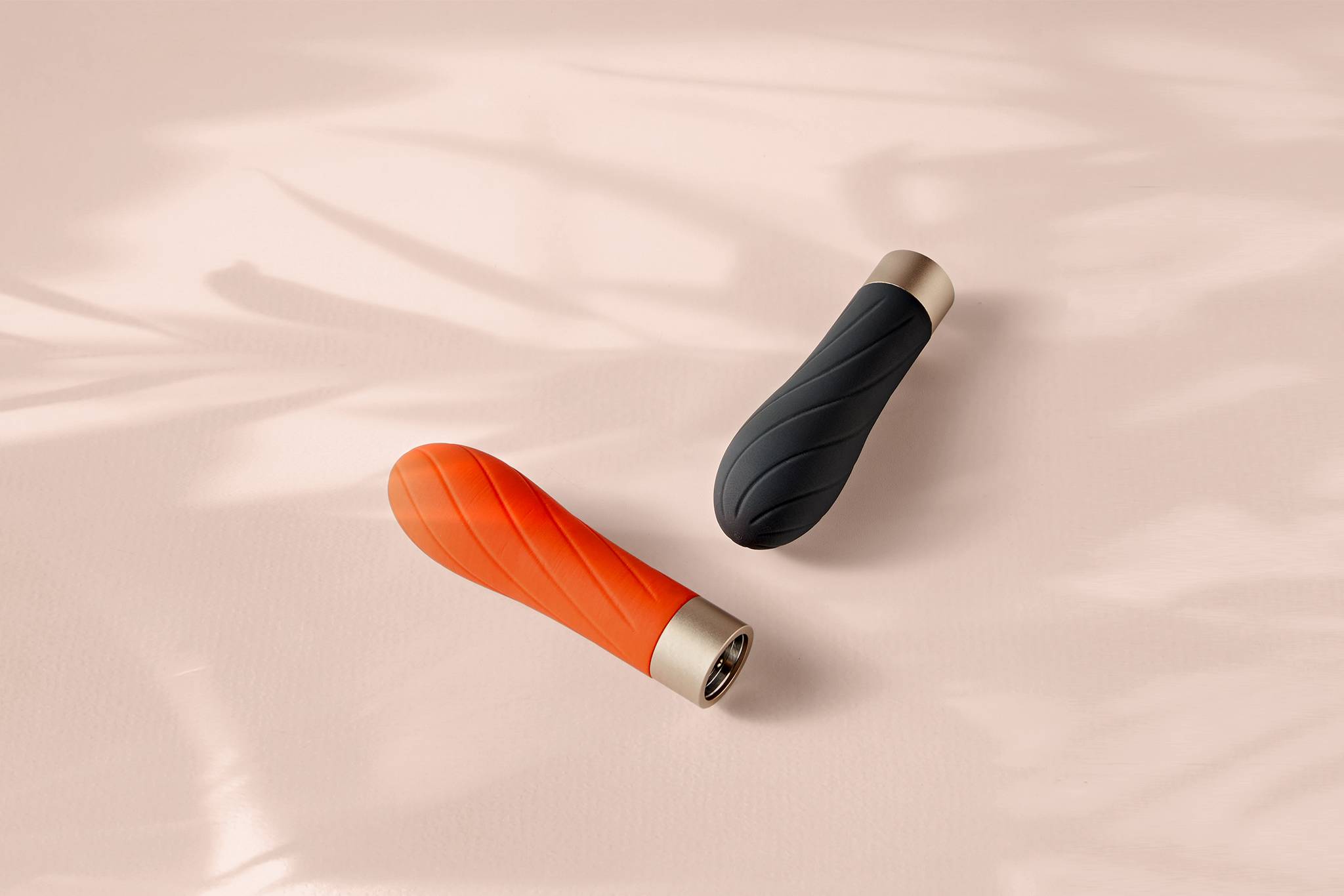CEO and cofounder Will Ranscombe was previously managing director at Je Joue, a luxury sex toy brand. He and his cofounder Rob Scott have each spent time working in different areas of the industry and found that material use, waste, sustainability and recycling were all things that weren’t a priority for most manufacturers. This realisation spurred the idea to create an ethos for Love Not War centred around sustainability.
“In recent years, we have witnessed consumers starting to practise sustainable habits in their everyday lives,” said Will. “However, we felt that when it came to ‘green’ sex toys, their choices were very limited.
“This is how Love Not War came about. From day one, being eco-friendly has been at the core of our business and our goal is for people to come along on the journey with us and in turn, become more environmentally conscious in their spending and consumption.
“We set about rethinking the design and manufacturing process of sex toys to create a product range that not only feels great, but is also sustainable and eco-conscious.”
Love Not War exclusively launched with Lovehoney in April 2021 and in addition to that ongoing partnership, the business is set to work with more retailers and distributors this year and expand into the USA and mainland Europe.
Sustainability at its heart
Love Not War’s target market centres around millennials and Gen Z, generations that are increasingly becoming more mindful in how and where they spend their money. With this in mind, the startup continually works to improve the green credentials of its product manufacturing by lowering its energy and water consumption, waste production, and reducing, repurposing and reusing where possible.
“All Love Not War toys come with a battery base that is interchangeable, meaning you can use just one battery unit to create multiple products,” said Will. “We also create the products using materials that are either recycled or recyclable. We put a great amount of thought into every area of our business model to ensure that nothing is wasted. And of course, we happily accept Love Not War products back for recycling.
![© Love Not War Shopping for a sustainable sex toy? Join the Love Not War buzz]()
© Love Not War
“We significantly reduced the amount of plastic in Love Not War toys, with the small amount of plastic we do use being certified bioplastic. We also focus on using recycled aluminium as the main material for the toys, as it is one of the most widely and easily recycled materials globally – up to 98% of the world’s aluminium is currently recycled.
“When it comes to our packaging, we use only recycled cardboard, with all of our packaging proudly carrying the FSC logo that shows that our products comply with the highest social and environmental standards on the market. This shows customers that they won’t be harming the world’s forests when they choose to buy a Love Not War toy.
“We also use eco-friendly soy ink, supply all of our products with a reusable tencel storage bag, and we even ensure that any glue we use is eco-friendly.”
Having such bold ambitions to make every part of an operation green is no easy task. Will and Rob decided to work with a sustainability expert to help set out and achieve their sustainability goals, and continue to monitor their performance and make changes where necessary. While this approach should help save the cofounders money in the long run, investing in expertise and physical workspace in the early stages of business is costly.
“Convenience is cheap,” said Will. “However, to ensure we practise what we preach while keeping the highest standards possible in our products, it is entirely worth it in the long run.
“We knew we needed to have our own factory to be able to have total control of the manufacturing process. We didn’t want to outsource and not know exactly what suppliers were being used or even what type of energy was being used to power the factory.
“We’re not perfect, but we’re always trying to find ways to improve. As the saying goes: “We don’t need a handful of people doing zero waste perfectly. We need millions of people doing it imperfectly”.”
![© Charlotte Willcox Shopping for a sustainable sex toy? Join the Love Not War buzz]()
E-cards for Valentine’s Day created in collaboration with illustrator Charlotte Willcox. © Charlotte Willcox
Social media hurdles
As experienced by Maddyness UK last year when we published our podcast series with sextech founders, launching a successful marketing campaign on social media when you operate in adult industries is extremely challenging. Love Not War has experienced similar struggles, with their Instagram account shadow-banned many times over the past year.
“Censorship in our industry needs to stop,” said Will. “Sex education and open discussion around sexual wellness are important, yet shockingly, we’re prohibited from getting information to people who need it.
“Most startups can use social media to advertise their products, but if you sell a sex toy, it’s not possible to advertise when you link back to your website. This means we have to be more creative and clever with our marketing.
“As the younger generations become more open and sexually confident, I think the big tech media giants will have to reevaluate their censorship and restriction policies on sexual wellness brands. Society is becoming more vocal and it’s about time the advertisers listened.”
The road ahead
Despite the hurdles presented by online advertising, Love Not War continues to expand its operation and boost new launches. For Valentine’s Day, the startup teamed up with body-positive illustrator Charlotte Willcox to develop a range of free eco-friendly e-cards in a bid to reduce the 8,000 trees that are cut down every year to supply the British public’s demand for physical Valentine’s Day cards. Love Not War will also plant a tree for every product sold on their website to help address the deficit caused by the holiday.
From spring, Love Not War’s product range will be available to distributors and retailers around the world, marking a huge milestone for the business.
“Our brand’s eco-friendly ethos is not just an added extra, but it’s actually at the very core of who we are and what we do, and it’s something we don’t ever want to lose as we grow,” added Will. “We want to ensure that it always remains the driving force behind the brand.”
Will Ranscombe is CEO and cofounder of Love Not War.


